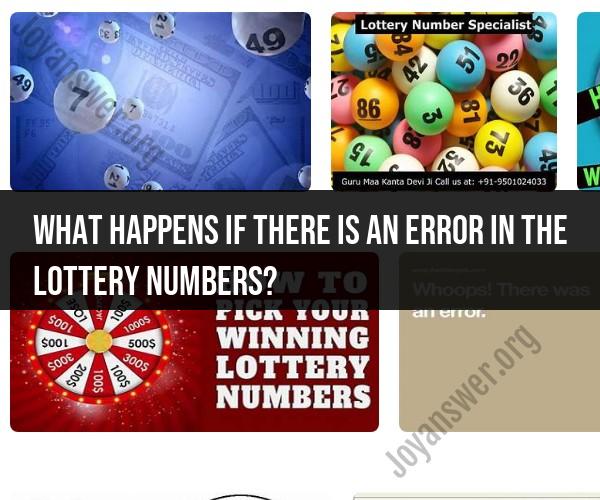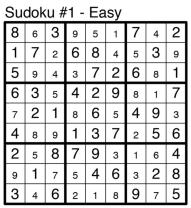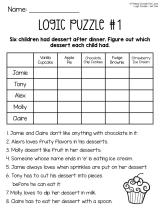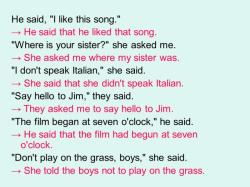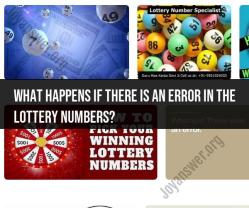What happens if there is an error in the lottery numbers?
Errors in lottery numbers can occur, but the procedures for handling such errors depend on the specific lottery and its rules and regulations. Lotteries are typically managed by government agencies or organizations, and they have established protocols to address errors and discrepancies. Here's what might happen if there is an error in lottery numbers:
Verification and Investigation: When an error is suspected or reported, the lottery organization will conduct a verification and investigation process to determine the accuracy of the reported numbers. This may involve checking the drawing equipment, reviewing security footage, and verifying the official results.
Announcement of Error: If a genuine error is confirmed, the lottery organization will publicly acknowledge it and provide details of the correction. The organization will typically issue a statement explaining the nature of the error and how it will be rectified.
Correction and Redrawing: In some cases, if a significant error is identified, the lottery organization may choose to correct the error and conduct a new drawing for the affected game. The corrected results will be the official winning numbers.
Prize Payouts: If the error does not necessitate a new drawing, the prize payouts will be adjusted according to the corrected numbers. Winners based on the corrected numbers will receive their prizes, and any incorrect prizes that were mistakenly awarded may need to be returned or adjusted.
Transparency and Accountability: Lottery organizations aim to maintain transparency and accountability in their operations. They will often release detailed reports and findings related to the error, ensuring the public and participants are informed about what occurred and how it was addressed.
Legal and Regulatory Oversight: Lotteries are subject to oversight by governmental regulatory bodies. In the case of significant errors or controversies, these regulatory bodies may conduct their own investigations and audits to ensure compliance with laws and regulations.
Claims and Disputes: Individuals who purchased lottery tickets based on the erroneous numbers may have questions or concerns about their tickets. They can contact the lottery organization's customer service or claims department to address their specific situations.
It's important to note that errors in lottery numbers are relatively rare due to the stringent security and verification procedures in place for such drawings. However, when errors do occur, lottery organizations take them seriously and work to rectify the situation in a fair and transparent manner to maintain the integrity of the lottery system. If you ever suspect an error in a lottery drawing, it is advisable to follow up with the lottery organization or the relevant regulatory authority for clarification and resolution.
Errors in Lottery Numbers: Causes, Consequences, and Solutions
Errors in lottery numbers can be caused by a variety of factors, including:
- Human error: Lottery drawings are often conducted manually, and humans can make mistakes. For example, a human operator may accidentally draw the wrong number or enter it incorrectly into the computer system.
- Technical errors: Lottery systems are complex, and technical errors can occur. For example, a computer glitch may cause the wrong number to be selected or displayed.
- Fraud: Lottery fraud is relatively rare, but it does occur. For example, a lottery insider may rig the drawing or alter the results after the drawing has taken place.
The consequences of an error in lottery numbers can be significant. If the wrong number is drawn, it can mean that the wrong person wins the jackpot. This can lead to financial hardship for the person who should have won the jackpot, and it can also damage the reputation of the lottery.
Solutions to errors in lottery numbers can include:
- Increased security: Lottery organizations can implement additional security measures to help prevent fraud and human error. For example, they can use multiple cameras to record the drawing and have multiple people verify the results.
- Redundant systems: Lottery organizations can also implement redundant systems to help catch and correct errors. For example, they can use two computers to generate the winning numbers and compare the results.
- Transparency: Lottery organizations can be more transparent about their procedures and how they handle errors. This can help to build public trust and confidence in the lottery.
The Complexity of Lottery Systems and Number Selection
Lottery systems can be complex, and there are many different ways to select lottery numbers. Some people choose their numbers based on personal significance, such as birthdays or anniversaries. Others use mathematical formulas or statistical analysis to try to select the winning numbers.
There is no one-size-fits-all approach to selecting lottery numbers. The best way to choose your numbers is the way that makes you most comfortable and gives you the best chance of winning.
Handling Mistakes and Discrepancies in Lottery Drawings
When a mistake or discrepancy occurs in a lottery drawing, the lottery organization should take steps to correct the error and ensure that the drawing is fair and accurate.
If the error is discovered before the drawing is completed, the lottery organization may redraw the numbers. If the error is discovered after the drawing is completed, the lottery organization may void the drawing and hold a new drawing.
In some cases, the lottery organization may be able to correct the error without having to redraw the numbers. For example, if a human operator accidentally enters the wrong number into the computer system, the lottery organization may be able to manually correct the error.
Fairness and Integrity in the World of Lottery Gaming
Fairness and integrity are essential to the lottery industry. Lottery organizations have a responsibility to ensure that their drawings are fair and that the results are accurate.
To help maintain fairness and integrity, lottery organizations implement a variety of security measures. For example, they may use multiple cameras to record the drawing and have multiple people verify the results. They may also use redundant systems to help catch and correct errors.
Lottery organizations are also subject to government regulation. This regulation helps to ensure that lottery organizations operate fairly and honestly.
Stories of Lucky Breaks and Unlucky Errors in Lottery Play
There are many stories of lucky breaks and unlucky errors in lottery play. Here are a few examples:
- Lucky break: In 2015, a woman in New York accidentally bought a lottery ticket with the wrong numbers. However, her mistake turned out to be lucky, as she won the $42 million jackpot.
- Unlucky error: In 2017, a man in Florida bought a lottery ticket with the winning numbers. However, he accidentally lost the ticket before the drawing. As a result, he was unable to claim his prize.
These stories are a reminder that anything can happen when it comes to the lottery. While there is no guarantee of winning, even a small mistake can have big consequences.
